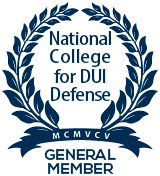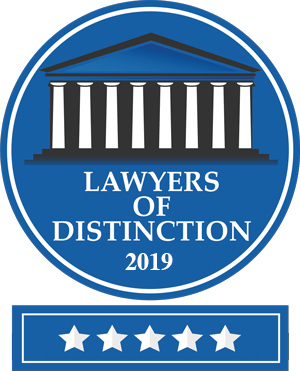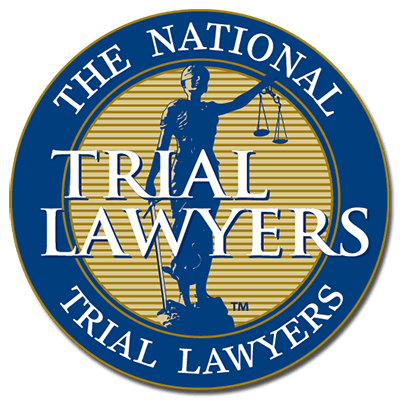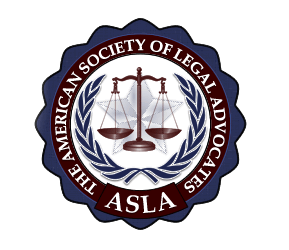DUI

At The Law Office of John M. Ogden we are dedicated to defending
your rights when it comes to DUI defense. Attorney John Ogden has
been practicing law and defending DUI defendants' rights in York County,
Pennsylvania since 1993. He focuses on finding
ways to creatively solve his clients' legal issues in an effective and
efficient manner. Attorney Ogden won a Supreme Court of Pennsylvania case which has changed the way in which DUI defendants are sentenced for multiple DUI offenses, until legislation changes the result. Com v. Haag. Attorney Ogden is a founding member of the Pennsylvania Drunk Driving Defense Association (PADDDA.COM) and a member of the National College for DUI Defense (NCDD.COM) and the DUI Defense Lawyers Association (DUIDLA). Click to see the NCDD website.
These organizations provide training and resources to win case and defend our clients. Attorney Ogden has attended intense and advanced sessions training by these organizations at locations including Cambridge MA, Hollywood, CA, Miami, FL and Nashville, TN to name a few.
Attorney Ogden has completed the training to receive his
certificate as an instructor in Standard Field Sobriety Testing created by the National Highway Traffic
Safety Institute (NHTSA). Attorney Ogden also completed a NHTSA ARDIE (Advanced Roadside Impaired Driving Enforcement overview class. This helps to assure that your case is analyzed properly and that every defense
possible is used in your favor.
Attorney Ogden is a member of several organizations dedicated to
the defense of DUI cases to ensure justice under the Law. Attorney Ogden is a member of numerous professional organizations designed to enhance his skills and training to provide world class service.
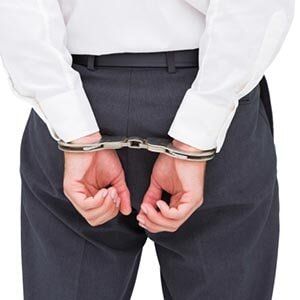
FREQUENTLY ASKED QUESTIONS
How can I look-up my case on the computer?
In Pennsylvania, docket entries of all adult criminal cases are public and can be found at PA Docket Entries
.
Do I need a Drug & Alcohol Evaluation for a DUI case?
Yes. The courts have recently made a Drug & Alcohol Evaluation, commonly called a "D&A Eval" a requirement to enter the ARD program for a DUI. It is best to have this D&A eval done as soon as possible after the arrest. In the event that your application for ARD is denied, we can ask the District Attorney for a Reconsideration. One of the factors in the DA's decision is when the D&A Evla was done and when did treatment begin. We refer our D&A evals to White Deer Run York Assessment Center, which is located in our building for your convenience.

Can a driver talk his/her way out of a DUI arrest?
No. In my experience talking to the police simply makes the
matter worse. The police can use your statements against you in court. In
almost all cases where the driver speaks to the police, the statements are used
against the driver's interests. If the police made the decision to arrest, the
chances of changing the officer's mind are extremely low. The police usually
wait until the blood test is returned from the laboratory before filing the
charges.
Our advice is to be polite, answer simple questions such as your
name and address and where you are coming from and going to. Beyond that any
statements you make are at your own risk. Remember, the police are watching and
listening for anything to use against you. They are highly trained and deal
with people in these situations every day. Here is a tip. The police frequently
ask suspects what time it is. If the person does not know or is way off, that
fact is noted in the report and can be used against the defendant at trial. If
you are stopped by the police, glance at the clock in your vehicle so you know
what time it is. It may sound small, but small details add up.

Do I need a Drug & Alcohol Evaluation for a DUI case
Our advice is to be polite, answer simple questions such as your
name and address and where you are coming from and going to. Beyond that any
statements you make are at your own risk. Remember, the police are watching and
listening for anything to use against you. They are highly trained and deal
with people in these situations every day. Here is a tip. The police frequently
ask suspects what time it is. If the person does not know or is way off, that
fact is noted in the report and can be used against the defendant at trial. If
you are stopped by the police, glance at the clock in your vehicle so you know
what time it is. It may sound small, but small details add up.
Can a driver be stopped by the police for any reason?
No. The police cannot stop the driver of a vehicle for any
reason. The police must establish probable cause to establish a proper stop.
There are basically three ways the police can establish probable cause to
justify the stop of a vehicle. First, is the police suspect that the driver is
impaired. Second, if the there is a violation of the vehicle code. Third, if
there is reason to believe that a crime is afoot. There are some exceptions,
such as accidents, complaints made to the police about a driver, etc.
When a client comes to a DUI offense or any traffic stop, the
first step is to find out why the vehicle was stopped and if it was legally
stopped. Sometimes, the evidence can be dismissed before trial if the stop was
illegal. This is the best defense to a DUI or driving under suspension charge.
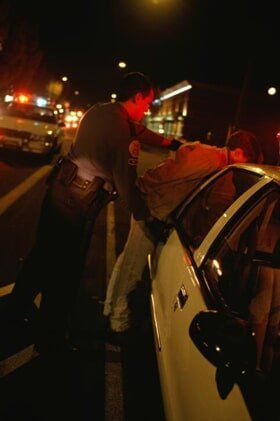
Is a driver REQUIRED to participate in the STANDARD SOBRIETY FIELD TEST?
No. There is no law in Pennsylvania requiring that a driver
participate in the field sobriety tests. These tests generally consists of a
one-legged stand for up to 30 seconds, the walk-and-turn test, the horizontal
gaze nystagmus (HGN) test and a preliminary breath test (PBT). These tests are
designed to test the driver's attention and coordination. The theory is that an
unimpaired driver could perform these tests properly and that an impaired
driver cannot. It is important to remember that these tests are administered by
the police officer and graded by the police officer. Moreover, most people are
nervous when asked to perform these tests. The tests are generally administered
along the road, with traffic driving by and with one or more police officers
watching the driver.
I recommend that a driver asked to perform these tests politely
decline. These tests are a form of self-incrimination. The results will be used
against you. The police cannot compel a driver to take any of these tests.
The request for blood, breath or urine sample is a different
matter. Refusing to take those tests, upon request of the police will result in
a driver's license suspension. The police need reasonable cause to ask a driver
to submit to a blood, breath or urine sample for testing. Generally, if someone
admits to drinking alcohol or there is an odor combined with other factors of
intoxication, the reasonable cause standard will be met.
Can a person be charged with a DUI request an INDEPENDENT BLOOD TEST?
Yes. We frequently ask the Court for permission to have the
blood sample re-tested by a laboratory that we use and respect. Sometimes,
there is discrepancy between the test results. In a borderline case, this can
be a very good negotiating tool.
Can a driver be charged with a DUI if he/shes BLOOD ALCOHOL LEVEL is below .08%?
Yes. This happens more frequently than most people realize. A
typical case is when a driver is stopped by the police for a minor traffic
infraction, such as a burned out light. The police officer smells alcohol or
has reason to believe that the driver has consumed drugs or alcohol. The police
officer has the driver perform the standardized field sobriety tests (SFSTs)
and decides that the driver has failed one or more of the tests. The officer
then asks the driver to submit to blood testing. At the hospital, the BAC%
level is below .08%. The driver is charged with DUI. Everyone knows that the
"legal limit" is .08%, right?
No. There is a section of the DUI law, 3802(a)(1) which states
that no amount of alcohol is necessary for a conviction. If the driver cannot
operate a vehicle safely due to consumption of alcohol, the driver may be
convicted of DUI.
Can the Police Search your car without a SEARCH WARRANT?
On April 29, 2014, the Supreme Court of Pennsylvania said yes to
that question. "We hold that, in this Commonwealth, the law governing
warrantless searches of motor vehicles is coextensive with federal law under
the Fourth Amendment. The prerequisite for a warrantless search of a motor
vehicle is probable cause to search; no exigency beyond the inherent mobility
of a motor vehicle is required. The consistent and firm requirement for
probable cause is a strong and sufficient safeguard against illegal searches of
motor vehicles, whose inherent mobility and the endless factual circumstances
that such mobility engenders constitute a per se
exigency
allowing police officers to make the determination of probable cause in the
first instance in the field."
Com. v. Gary , 91 A.3d 102, 138 (Pa. 2014)
Com. v. Gary , 91 A.3d 102, 138 (Pa. 2014)
Smile, you may be on CAMERA!
Many police departments and most State Police in Pennsylvania
have cameras in their police cars. These cameras generally turn-on when the
Trooper's lights are turned-on. The Trooper or police officer does not have to
tell you, and will not tell you, that you are being filmed. However, always act
as though you are on camera. Be polite and do not do anything that you would
not want a jury to see later. Many times the camera can actually assist your
defense. Attorney Ogden recently had a criminal jury trial where the police
videotape was used by him to create reasonable doubt in the mind of the jury.
IF YOU HAVE A DUI QUESTION OR HAVE BEEN CHARGED WITH DUI, CALL
US! Don't take a chance with something as important as a DUI charge or any
criminal charge. Call the experts. We handle DUI and criminal cases every day.
We have been practicing DUI law and criminal law since 1993.
Just as you would consult a doctor if you had a serious medical
problem, don't wait to consult a lawyer experienced in DUI law and criminal law
with a track record of proven results in difficult cases. Call us at (717)
846-0550.
We will give you honest straight forward advice and let you make
the ultimate informed decision in the case.

Are the TINTED WINDOWS on your vehicle Legal?
Maybe not. The Superior Court of Pennsylvania has recently held
that tinted windows are not per se illegal. A man was stopped in Camp Hill
Borough and cited for having his car windows tinted. He argued that
Pennsylvania law simply prohibits sun screening which does not permit a person
to see or view the inside of the vehicle through the windshield, side wing or
side window of the vehicle.
The police officer used a light meter to measure the amount of
light per state regulations. He found that much less light than the 70%
required by law was passing through the driver's windows. The driver was cited
for having illegally tinted windows. The Superior Court agreed that the PA
State Regulations were incorrectly applied and constituted an unreasonable
interpretation of the state sun screening law.
If you have been stopped by the police for having tinted
windows, call John Ogden to see if you qualify for relief. Many times the
police will stop a driver for having tinted windows, but cite the driver for
other offenses. These additional charges may be quashed if the initial stop was
illegal.
Do You Qualify For the ACCELERATED REHABILITIVE DIPOSITION (ARD) Program?
The ARD program
is
offered to certain offenders who have no significant criminal record. This
program offers a driver charged with a DUI offense to perform community service
and attend certain classes in exchange for a shorter driver's license
suspension and expungement of the charges upon successful completion of the
program. The details can be viewed at the York County District Attorney's Website.
If you have been denied ARD
,
contact us and we will seek reconsideration by highlighting the reasons why you
should have been accepted into the program. We have had success in persuading
the District Attorney to change his mind when the facts and circumstances
warrant admission into the ARD program.
Can a driver be arrested for having prescription drugs in his or her system?
Yes. In recent years, drugged driving arrests have surpassed for driving while impaired by alcohol alone. Drugs that affect the Central Nervous System (CNS) can result in a DUI, even if prescribed.
http://www.columbusrecoverycenter.com/the-dangers-of-drugged-driving/
CNS depressants, sometimes referred to as sedatives and tranquilizers, are substances that can slow brain activity. This property makes them useful for treating anxiety and sleep disorders. Among the medications commonly prescribed for these purposes are the following:
Benzodiazepines, such as diazepam (Valium) and alprazolam (Xanax), are sometimes prescribed to treat anxiety, acute stress reactions, and panic attacks. The more sedating benzodiazepines, such as triazolam (Halcion) and estazolam (ProSom) are prescribed for short-term treatment of sleep disorders. Usually, benzodiazepines are not prescribed for longterm use because of the risk for developing tolerance, dependence, or addiction.
Non-benzodiazepine sleep medications, such as zolpidem (Ambien), eszopiclone (Lunesta), and zalepon (Sonata), have a different chemical structure, but act on some of the same brain receptors as benzodiazepines. They are thought to have fewer side effects and less risk of dependence than benzodiazepines.
Barbiturates, such as mephobarbital (Mebaral), phenobarbital (Luminal Sodium), and pentobarbital sodium (Nembutal), are used less frequently to reduce anxiety or to help with sleep problems because of their higher risk of overdose compared to benzodiazepines. However, they are still used in surgical procedures and for seizure disorders.
Below is an excerpt from the Pa DUI statute concerning drugged driving:
75 Pa.C.S.A. § 3802
§ 3802. Driving under influence of alcohol or controlled substanceEffective: May 11, 2006
(d) Controlled substances.--An individual may not drive, operate or be in actual physical control of the movement of a vehicle under any of the following circumstances:
(1) There is in the individual's blood any amount of a:
(i) Schedule I controlled substance, as defined in the act of April 14, 1972 (P.L. 233, No. 64),1 known as The Controlled Substance, Drug, Device and Cosmetic Act; (ii) Schedule II or Schedule III controlled substance, as defined in The Controlled Substance, Drug, Device and Cosmetic Act, which has not been medically prescribed for the individual; or (iii) metabolite of a substance under subparagraph (i) or (ii). (2) The individual is under the influence of a drug or combination of drugs to a degree which impairs the individual's ability to safely drive, operate or be in actual physical control of the movement of the vehicle.
(3) The individual is under the combined influence of alcohol and a drug or combination of drugs to a degree which impairs the individual's ability to safely drive, operate or be in actual physical control of the movement of the vehicle. (4) The individual is under the influence of a solvent or noxious substance in violation of 18 Pa.C.S. § 7303 (relating to sale or illegal use of certain solvents and noxious substances).
http://www.columbusrecoverycenter.com/the-dangers-of-drugged-driving/
CNS depressants, sometimes referred to as sedatives and tranquilizers, are substances that can slow brain activity. This property makes them useful for treating anxiety and sleep disorders. Among the medications commonly prescribed for these purposes are the following:
Benzodiazepines, such as diazepam (Valium) and alprazolam (Xanax), are sometimes prescribed to treat anxiety, acute stress reactions, and panic attacks. The more sedating benzodiazepines, such as triazolam (Halcion) and estazolam (ProSom) are prescribed for short-term treatment of sleep disorders. Usually, benzodiazepines are not prescribed for longterm use because of the risk for developing tolerance, dependence, or addiction.
Non-benzodiazepine sleep medications, such as zolpidem (Ambien), eszopiclone (Lunesta), and zalepon (Sonata), have a different chemical structure, but act on some of the same brain receptors as benzodiazepines. They are thought to have fewer side effects and less risk of dependence than benzodiazepines.
Barbiturates, such as mephobarbital (Mebaral), phenobarbital (Luminal Sodium), and pentobarbital sodium (Nembutal), are used less frequently to reduce anxiety or to help with sleep problems because of their higher risk of overdose compared to benzodiazepines. However, they are still used in surgical procedures and for seizure disorders.
Below is an excerpt from the Pa DUI statute concerning drugged driving:
75 Pa.C.S.A. § 3802
§ 3802. Driving under influence of alcohol or controlled substanceEffective: May 11, 2006
(d) Controlled substances.--An individual may not drive, operate or be in actual physical control of the movement of a vehicle under any of the following circumstances:
(1) There is in the individual's blood any amount of a:
(i) Schedule I controlled substance, as defined in the act of April 14, 1972 (P.L. 233, No. 64),1 known as The Controlled Substance, Drug, Device and Cosmetic Act; (ii) Schedule II or Schedule III controlled substance, as defined in The Controlled Substance, Drug, Device and Cosmetic Act, which has not been medically prescribed for the individual; or (iii) metabolite of a substance under subparagraph (i) or (ii). (2) The individual is under the influence of a drug or combination of drugs to a degree which impairs the individual's ability to safely drive, operate or be in actual physical control of the movement of the vehicle.
(3) The individual is under the combined influence of alcohol and a drug or combination of drugs to a degree which impairs the individual's ability to safely drive, operate or be in actual physical control of the movement of the vehicle. (4) The individual is under the influence of a solvent or noxious substance in violation of 18 Pa.C.S. § 7303 (relating to sale or illegal use of certain solvents and noxious substances).
USEFUL LINKS
- Standard ARD - DUI Conditions in York County
- York County ARD Qualifications and Point System
- DUI in PA.com
- PennDot Point System
- The National Highway Traffic Safety Administration (NHTSA)
If you have questions about a DUI charge or the ARD program, call John Ogden for answers at (717) 845-1000
.
Contact our law firm
in York, Pennsylvania, to schedule an appointment with John M. Ogden.
BROWSE OUR WEBSITE:
CONNECT WITH US:
Phone: (717)845-1000
110 North George Street. 2nd Floor. York PA 17401
CONNECT WITH US:
Phone: (717)845-1000
110 North George Street. 2nd Floor. York PA 17401
"
We Provide Efficient, Effective Legal Services ℠
"
Content, including images, displayed on this website is protected by copyright laws. Downloading, republication, retransmission or reproduction of content on this website is strictly prohibited. Terms of Use
| Privacy Policy







